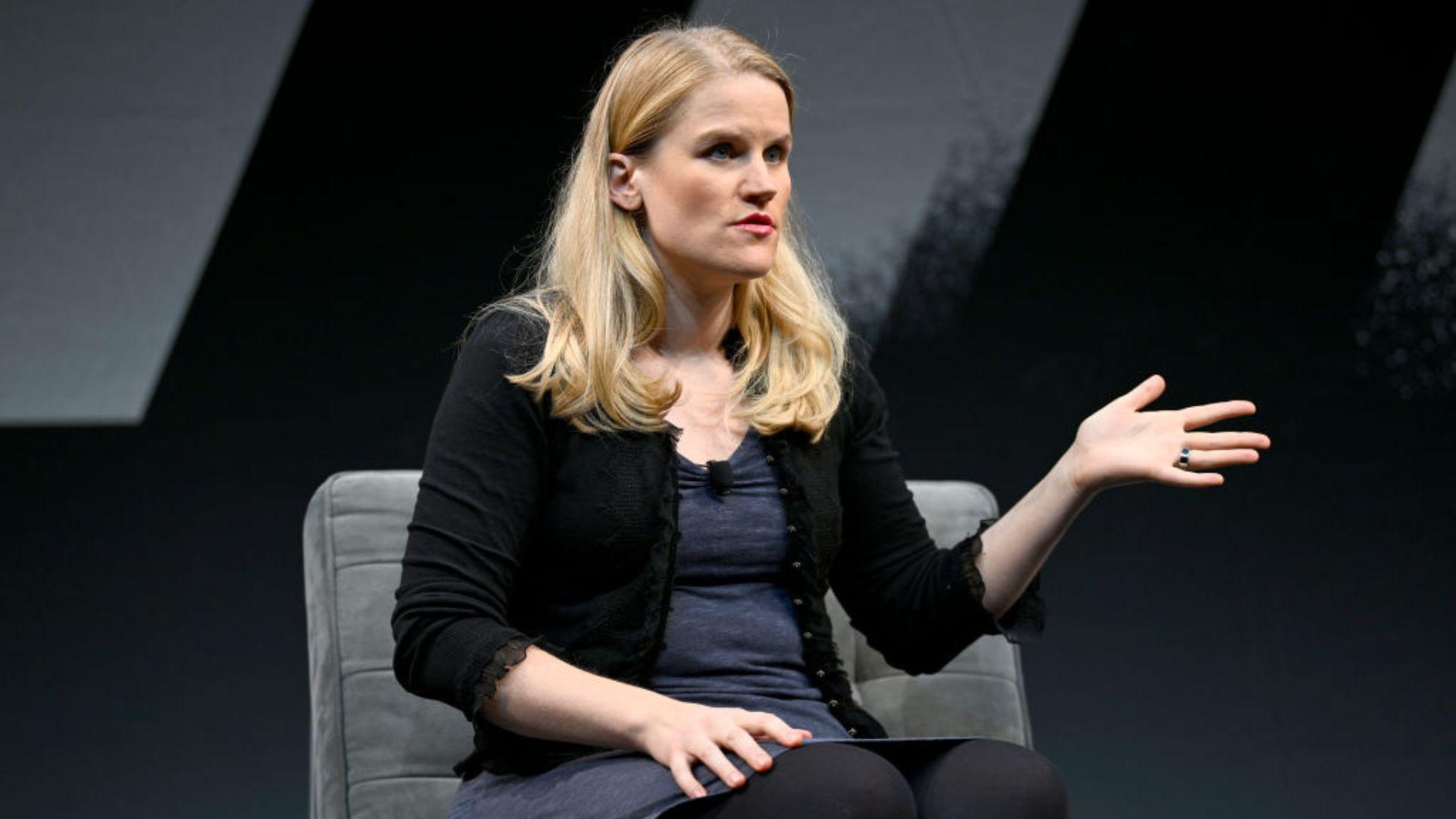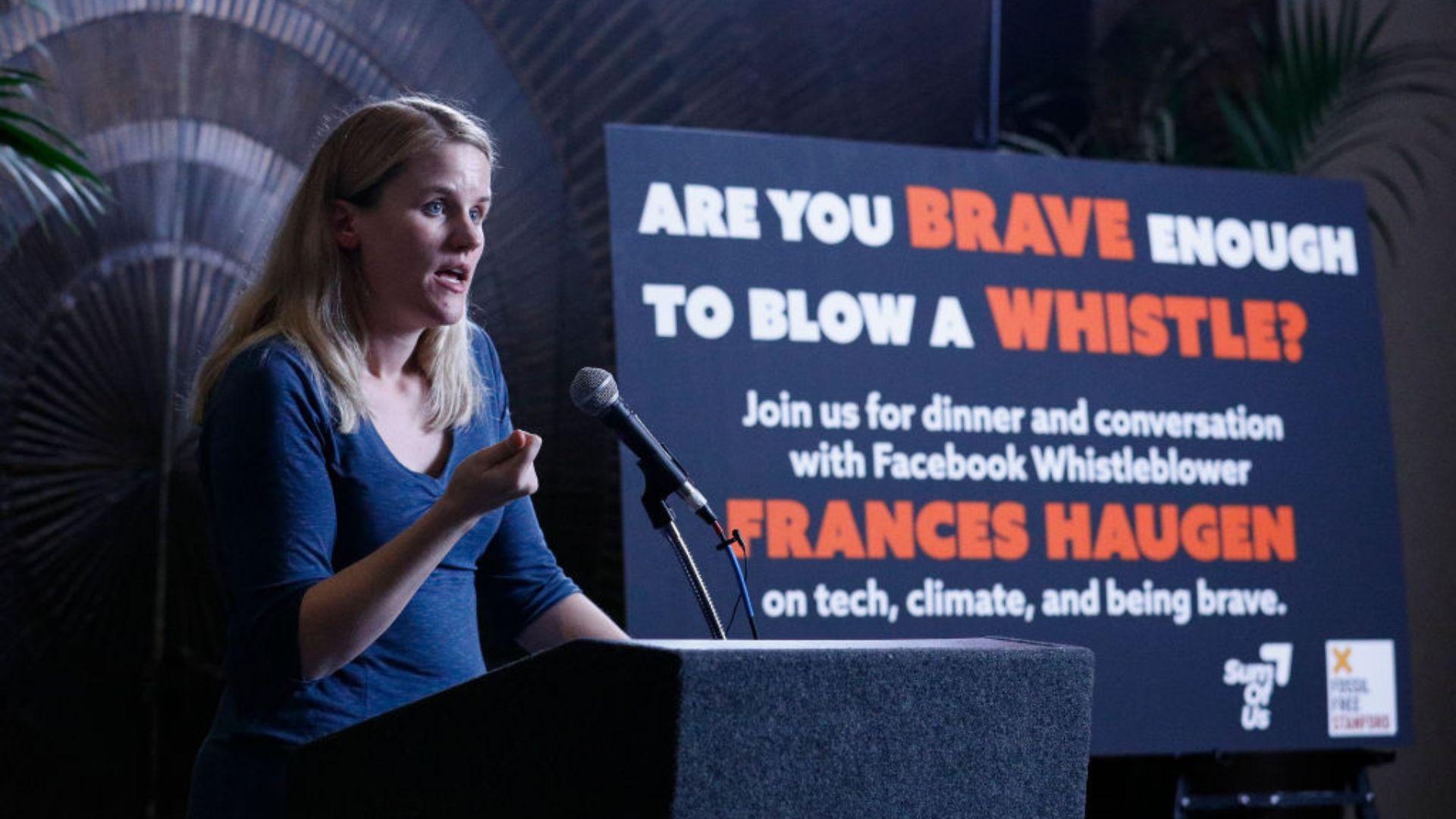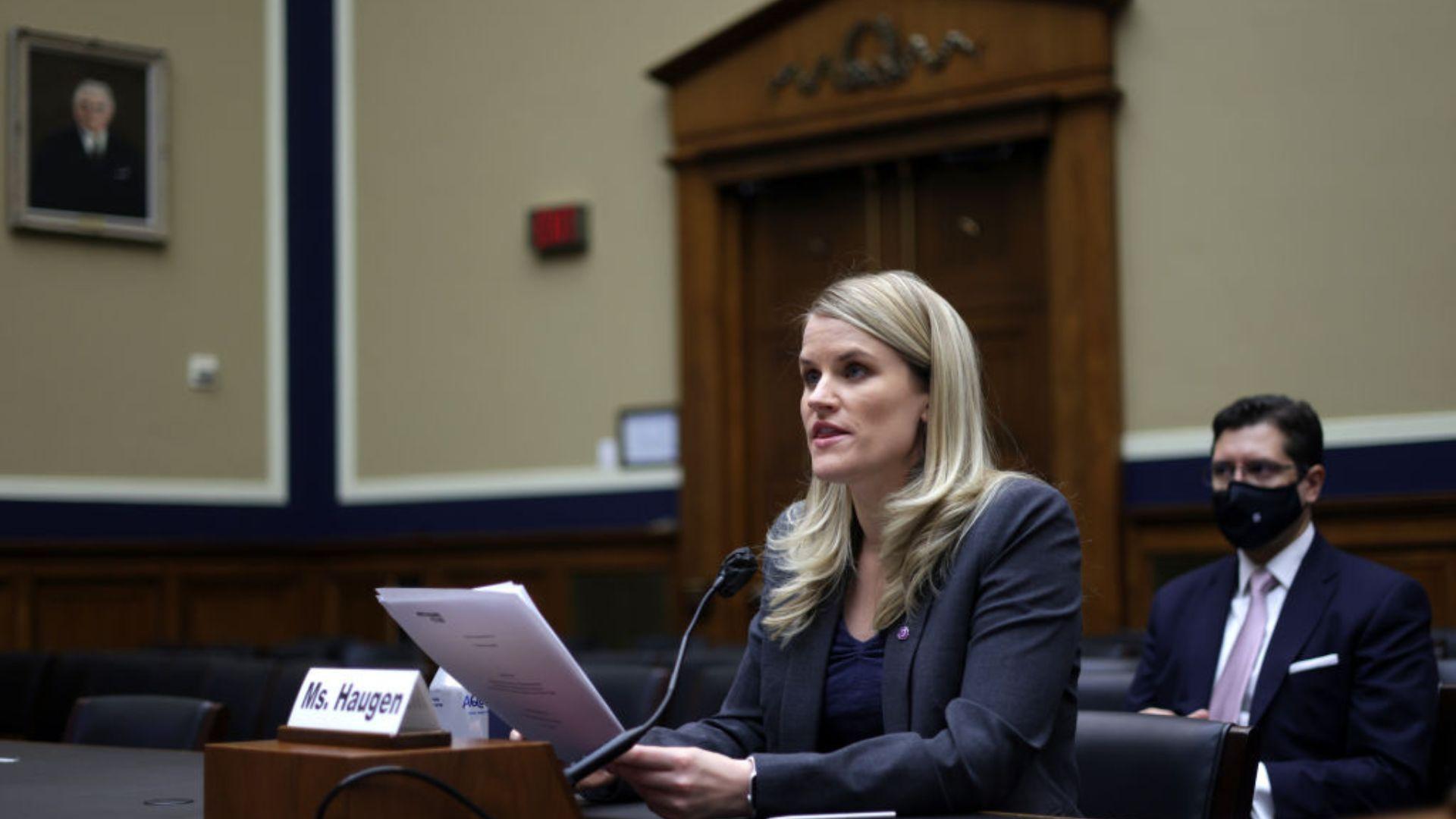Former Facebook Employee Reveals Disturbing Truth Regarding AI
A former Facebook employee, Frances Haugen, has brought to light concerns surrounding the advancement and impact of artificial intelligence (AI).
Haugen, who has gained attention as a whistleblower, expressed her apprehensions about the potential negative effects of AI technology, especially concerning the spread of misinformation and the ‘civilization-altering impacts’ that could arise if not properly managed and regulated.
AI’s Expansion and the Emerging Challenges
As AI continues to grow and integrate into global economies and data centers, Haugen warns of an ‘era of opacity.’ This phrase encapsulates the concerns of reduced transparency and increased obscurity in decision-making processes.

Source: Getty Images
The integration of AI in various sectors could potentially lead to complex challenges, emphasizing the necessity for enhanced regulatory frameworks to mitigate risks.
The Dangers of Unchecked Authority in AI
Haugen highlighted a concerning scenario where a small group of individuals could potentially wield enormous power due to AI.

Source: Andrea De Santis/Unsplash
The whistleblower stressed the lack of comprehensive understanding about these AI systems among the masses, raising questions about accountability, control, and the ethical management of technology that significantly influences public opinion and individual behaviors globally.
The Algorithm’s Influence
The whistleblower exposed that algorithms are designed to prioritize and promote divisive and polarizing content to increase user engagement and profit.

Source: Will Francis/Unsplash
Haugen’s revelations provide insights into the internal workings of social media platforms like Facebook. This information underscores the need for a more transparent, ethical, and accountable mechanism for content distribution to safeguard public interest.
The Profit Motive
Haugen’s statements draw attention to the conflict between profit motives and information integrity. She cautioned against the widening gaps caused by unregulated spread of misinformation, influenced by economic interests.

Source: Getty Images
Haugen’s insights bring attention to the critical need for establishing feedback mechanisms and regulatory measures to ensure that the pursuit of profit does not compromise public welfare and information accuracy.
The Imperative for Legal Oversight
Haugen asserts that legal and regulatory interventions are indispensable. She calls for the establishment of laws that mandate transparency and support whistleblowers.

Source: Getty Images
The revelations made by the whistleblower not only highlight existing challenges, but also demonstrate the urgency for international discourse and action to ensure that the rapid advancements in AI are aligned with ethical standards and public safety.
AI’s Global Reach
Artificial intelligence is not a future phenomenon but a present reality, with millions using AI programs daily. It’s a silent force, significantly influencing various aspects of human life.

Source: Tara Winstead/Pexels
The insights shared by Haugen invite a deeper examination of the regulatory, ethical, and safety paradigms governing AI, considering its pervasive presence and profound impact on societies worldwide.
AI and Regulatory Challenges in Australia
Journalist Peter Greste echoes Haugen’s sentiments, specifically in the Australian context where AI usage is common. There’s a distinct need for a mechanism that safeguards the interests of journalists and whistleblowers.

Source: Getty Images
These individuals play a crucial role in ensuring transparency, accountability, and the ethical use of AI, thereby contributing to informed public discourse and policy development.
Calls for Greater Transparency in Australia
Greste also criticizes the prevalent culture of secrecy, especially within security and defense agencies in Australia. He highlights the necessity for increased transparency to mitigate associated challenges.

Source: cottonbro studio/Pexels
This perspective aligns with Haugen’s insights, reinforcing the international nature of concerns related to AI and the need for global cooperation, dialogue, and action to address associated ethical and safety issues.
The Need for Transparency
The demand for transparency in the operation and impact of AI systems is a resonating theme in the discussions surrounding this technology.

Source: Getty Images
The insights provided by Haugen and supported by figures like Greste emphasize the critical role that openness, ethical standards, and regulatory measures play in mitigating risks and harnessing the positive potential of AI.
The Role and Risks of Whistleblowers
Whistleblowers like Haugen play a pivotal role in unveiling behind-the-scenes operations in tech industries.

Source: Getty Images
Their disclosures shed light on the importance of protecting such individuals, who often risk their careers to bring forth information that has broad societal implications.
Moving Forward With Informed Vigilance
The revelations brought forward by Haugen, combined with insights from experts like Greste, highlight the pressing need to monitor and govern the growth of artificial intelligence.

Source: Mojahid Mottakin/Unsplash
As we chart the path forward, a balance between innovation and oversight will be essential to ensure AI benefits society at large.
